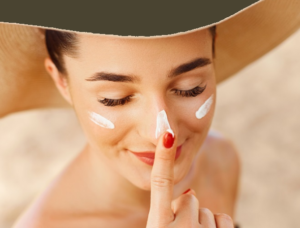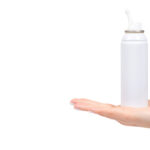Tips for looking after your skin during the summer

As the hot summer approaches, our skin begins to alter. Isn’t that so? With the constant heat and humidity,
your skin begins to cry out for additional protection, displaying everything from irritating rashes and sunburn
s to a persistent tan and acne.
To avoid undesirable summer skin problems, you must immediately improve your skincare routine. Let’s look at
how.It requires high temperatures, and pollution harms it greatly. In this post, we will go over seven summer
skincare recommendations and how to protect your skin from the elements so you can stay bright and radiant.
Why Do We Need a Different Summer Skin Care Routine?
One of the most basic rules of effective skincare is maintaining separate winter and summer routines. This is due to several factors:
- -In the summer, the sun is more potent, necessitating more UV protection.
- In the summer, humidity levels are higher, necessitating the use of different moisturizing agents.
- Sebum production increases as humidity rises, necessitating more regular exfoliation and washing.
You will require separate daytime and evening routines tailored to the needs of summer skin.
What Effect Does Summer Have on Your Skin?
As the weather warms and the humidity in the air rises, your skin’s sebaceous glands begin to produce
more sebum (natural oil). Stickiness, grease, and clogged pores result from the oil released on the skin’s surface.
In the summer, the most common concern is acne outbreaks. People with oily skin are particularly susceptible
because bacteria and oils in the skin interact with perspiration, clogging pores and treating acne.
Melanin production increases when your skin is exposed to damaging UV rays to protect it from sun damage.
Melanin has photoprotective properties, and too much of it causes darker browned skin. Other symptoms of sun
sensitivity include itchy skin, prickly heat, sunburn, and rash.
Simple steps to include in your summer skincare routine
Summertime skincare is typically lighter than wintertime skincare. Summer’s high humidity helps to hydrate the
skin, but you will need moisture-locking creams. Follow the tips below to keep your face covered on hot summer
days.
How to Take Care of Your Skin in Summer?
1. Face Wash to Get Rid of Extra Oil
Oily skin can become even more oily in the heat. Use a face wash suitable for your skin type and capable of deep
cleansing and removing all dirt and grime. A non-foaming cleanser is recommended for people with dry skin.
Choose cleansers that are gentle, alcohol-free, and pH balanced.
Because your body loses much moisture in the summer, drinking enough water and fluids is crucial. This will help you take care of your skin in the summer and keep it soft and hydrated. The most crucial step in your summer skincare routine is to properly moisturize your skin and body to keep it healthy and nourished on the inside and out.
- Apply a good moisturizer to your skin.
- Drink plenty of water every day, at least seven to eight glasses.
- Select a face cleanser suited for your skin type, especially oil-free for oily skin.
- Wash your face twice a day, in the morning and evening, with cold water.
It is essential to wash and clean your face twice a day! Even if you do not leave the house, you should follow this protocol.
2. Include Antioxidants In Your Skin Care Regime
Antioxidant serums do wonders for your skin’s hydration. In addition, they shield your skin from environmental
harm, support collagen production, and scavenge free radicals to stop skin damage. An excellent antioxidant serum
should be a part of your summer skincare regimen. You can also include it in your diet by storing citrus fruits, green
leafy vegetables, and green tea.
Vitamin C serum is a beautiful choice for a summer skincare routine, according to Abhisikta Hati, Senior Product
Development Executive at SkinKraft. It is advantageous in the summer. Vitamin C is a powerful antioxidant and free
radical scavenger that guards against oxidant-induced harm to your skin and aids in fading the pigmentation
brought on by dangerous UV radiation.
3.Drink More Water & Fruit Juices
A minimum of 2-3 liters of water should be consumed daily during the heat. Watermelons, coconut water, and fresh
juices are all excellent sources of fluids. Water consumption aids in the removal of toxins from the body. Include
buttermilk and yogurt in your diet.
4.Moisturize well
Despite how hot the summers are, your skin needs to be properly hydrated. Moisturizers, essential oils, and serum
can all be used to hydrate, heal, and minimize skin inflammation. Your skin is shielded by moisturizer from harmful
chemicals and airborne particles. Moisturizer gives the face additional hydration by keeping water and natural oils in
the skin.However, if you have regular skin, you can use a moisturizer with a water basis. For acne-prone and oily
skin, facial sprays and gel-based moisturizers work well.
5.Home remedies
Remember what your grandmother told you—many items in your kitchen can help you have good skin in the
summer.
- Your skin can be made fresh using tomatoes and lemons.
- Lycopene, an antioxidant found in tomatoes, shields skin against aging, fine lines, and wrinkles. Make tomato
juice by grinding the fruit without water and freezing it in ice cube trays. Apply these cubes to your face to scrub.
- Aloe vera is the most effective skin treatment, moisturizing and hydrating skin. Scars, acne, and pimples can all
be treated with it. For oily skin, honey and aloe Vera paste work well.
- For acne, tulsi works well. Apply a face pack made of curd and tulsi powder for 15 minutes.











